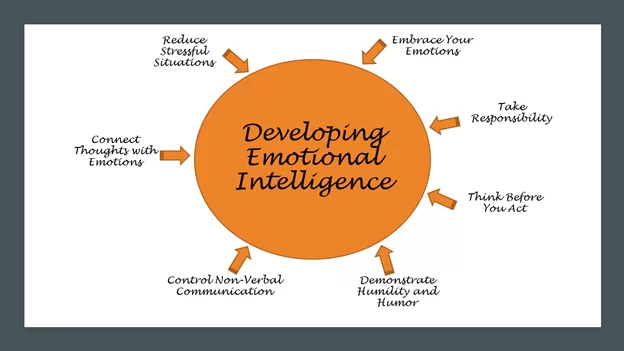Emotional Intelligence (EI) is the ability to sense, understand, and effectively personal emotions and the emotions of those around you to get the best of human energy, information, trust, creativity, and influence. EI can deliver the following benefits:
- Embrace your emotions
- Take responsibility
- Think before you act
- Demonstrate humility and humor
- Control non-verbal communication
- Connect thoughts with emotions
- Reduce stressful situations
EI is useful for career success, helping leaders and their staffs build a collaborative culture, emphasize everyone’s strengths, and work to mitigate weaknesses. EI is a method that can create strong bonds in teams by sharing technical expertise and creating solid recommendations for action.
There are key components to EI in the workplace: self-awareness, self-regulation, social awareness or skill, empathy, and motivation. Self-awareness is the ability to know your emotions, strengths, weaknesses, and motivators and how they affect others. Self-regulation is the ability to manage personal emotional state and to think before acting. Social awareness or skill refers to proficiency in managing relationships, finding common ground, and building rapport. Empathy is about understanding and appreciate other people’s emotions, strengths, weaknesses, and motivators and use the knowledge to guide your behavior. Motivation is the passion and persistence that guides your efforts in reaching team goals.
Two theories are helpful for those who embrace EI. Sensemaking Theory is a collaborative process that creates shared awareness and understanding out of different individuals’ perspectives and varied interests. Communication Accommodation Theory addresses adjusting verbal and nonverbal interactions to emphasize or minimize differences between participants. These interactions use language, context, identity, and intergroup and interpersonal factors to find common ground.
There are many benefits to developing EI in the workplace beyond those listed here. I look forward to continuing the discovery.

